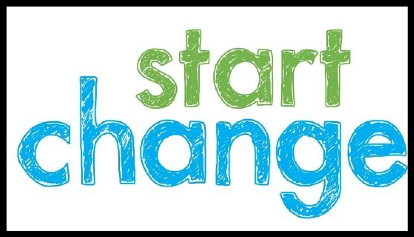1:30 p.m. to 5:00 p.m. Eastern Time
Free!
This year's Community Data Canada Roundtable is happening next Wednesday. On June 18, five practitioners will deliver presentations on the use of data related to income and wealth at small geographic areas.
Thank you to those who have already registered. For those who wish to attend, but haven't yet registered, you're welcome to do so right up until the day of the Roundtable.
Who can attend?
The Roundtable is open to anyone. It will be especially relevant to those working in local public and not-for-profit organizations, e.g. municipalities, school boards, social planning councils, economic development groups, public health units, etc. Interested individuals from other sectors are also encouraged to attend.
Agenda
| 1:00 p.m. to 1:30 p.m. |
Period to address technical issues among attendees |
| 1:30 p.m. to 1:40 p.m. |
Welcome and introduction from CCSD
Katherine Scott, Vice President, Research & Policy, CCSD |
| 1:40 p.m. to 1:50pm |
How CCSD’s Community Data Program can help you measure income, poverty, and inequality at small geographic areas
Michel Frojmovic, Lead, CCSD Community Data Program |
| 1:50 p.m. to 2:20 p.m. |
Comparing NHS with Taxfiler income data in Waterloo Region
Jessica Deming, Epidemiologist, Region of Waterloo Public Health |
| 2:20 p.m. to 2:50 p.m. |
Working with NHS and Taxfiler data to measure income and poverty in Toronto neighbourhoods
Wayne Chu, City of Toronto |
| 2:50 p.m. to 3:20 p.m. |
Turning evidence into action: How using data is making a difference in our communities
Ted Hildebrandt, Director of Social Planning, Community Development Halton |
| 3:20 p.m. to 3:50 p.m. |
Neighbourhood financial health and financial vulnerability in Wood Buffalo Regional Municipality and the City of Fort McMurray
Manny Makia, Chief Social Innovator, FuseSocial |
| 3:50 p.m. to 4:20 p.m. |
Environics Analytics: WealthScapes and CensusPlus with Enhanced NHS Data
Tony Lea, Chief Methodologist and Senior Vice President, Environics Analytics |
| 4:20 p.m. to 4:50 p.m. |
Question and Answer session |
| 3:50 p.m. to 4:00 p.m. |
Concluding remarks
Michel Frojmovic, Lead, CCSD Community Data Program |
Registration and login information
The meeting starts at 1:30 p.m. but attendees may join starting at 1:00 p.m. to iron out technical issues.
You will need a computer with an internet connection, as well as speakers or headphones. Attendees will be muted, but we encourage you communicate with the host and presenters via the chat function.
Upon entering the webinar on June 18, please select "Use your speakers (for listening only)". This will minimize echo and feedback during the webinar. See image below.


 Trish Hennessy is the founding director of the new Canadian Centre for Policy Alternatives' (CCPA) Ontario office. She was the founding director of the CCPA's national project examining income inequality in Canada, which began in 2006, and is an ongoing contributor to the growing gap team. Her blog,
Trish Hennessy is the founding director of the new Canadian Centre for Policy Alternatives' (CCPA) Ontario office. She was the founding director of the CCPA's national project examining income inequality in Canada, which began in 2006, and is an ongoing contributor to the growing gap team. Her blog,  As Director of Pathway to Potential since 2009, Adam has been responsible for the development of a collaborative, multi-sector strategy for the prevention and reduction of poverty in Windsor-Essex County. This position, which draws on his training in law and social work, has allowed Adam to fulfill his long-time commitment to social justice. Through this work, he sits on numerous local, provincial and national poverty-related committees. Prior to joining Pathway to Potential, Adam worked in the field of children’s mental health. Adam has volunteered for numerous local agencies and organizations, including Citizen Advocacy, the Alzheimer’s Society, and the Ontario Association of Social Workers. Adam received the 2012 “Distinguished Social Worker of the Year” award through the Ontario Association of Social Workers – Southwestern Branch, and in July 2013 the provincial government appointed him to Minimum Wage Advisory Panel.
As Director of Pathway to Potential since 2009, Adam has been responsible for the development of a collaborative, multi-sector strategy for the prevention and reduction of poverty in Windsor-Essex County. This position, which draws on his training in law and social work, has allowed Adam to fulfill his long-time commitment to social justice. Through this work, he sits on numerous local, provincial and national poverty-related committees. Prior to joining Pathway to Potential, Adam worked in the field of children’s mental health. Adam has volunteered for numerous local agencies and organizations, including Citizen Advocacy, the Alzheimer’s Society, and the Ontario Association of Social Workers. Adam received the 2012 “Distinguished Social Worker of the Year” award through the Ontario Association of Social Workers – Southwestern Branch, and in July 2013 the provincial government appointed him to Minimum Wage Advisory Panel. 

 Thursday, September 4
Thursday, September 4 What do you do to make people in your community feel welcome? How do you create opportunities for people from all backgrounds to participate fully in building and improving your community?
What do you do to make people in your community feel welcome? How do you create opportunities for people from all backgrounds to participate fully in building and improving your community?